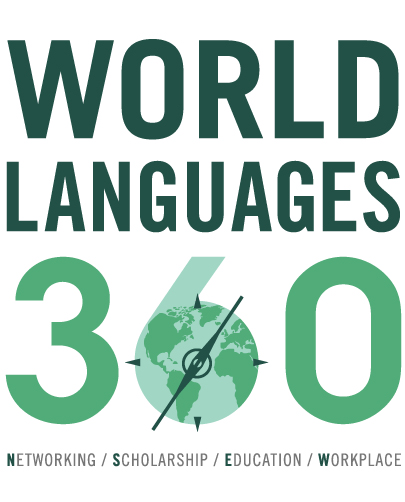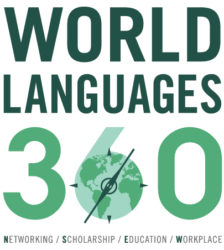(click the title above to expand and submit your own comment)
What is STEM and why is it so dominant? As you probably know, STEM is an acronym for Science, Technology, Engineering, and Math. Along with a few fortunate Humanities disciplines such as English, or Social Science classes, they tend to form the core of required curricula in the K-12 world and even in some university general education requirements. STEM disciplines are seen as reliable, solid, serious, challenging, and career-launching. Perhaps you’ve seen reports or heard mention in the news that there always seems to be a shortfall of learners pursuing these critical disciplines, leaving jobs unfilled and making those who do work in these fields able to command attractive and competitive salaries. Educational policy nationally in the United States has favored STEM in the past few years, and this has radiated out to the K-12 world in states and into higher education as well.
So, where does that leave World Languages, and what are the concerns of World Languages educators? While some languages are considered to be critical and less commonly taught, and those corresponding to national security concerns can prove attractive to learners, generally speaking these educators feel themselves on the outside looking in at a party to which only scientists, employers, and policy-makers have been invited. To an extent, the emphasis on certain disciplines because they are perceived to lead to employment (after all, higher education is so pricey), does make sense. Student loan debt is no laughing matter, and some economists have begun to express a public fear that widespread collapse of student loan debt could be the next economic bubble to burst. To continue the party motif, it is the potential equivalent of a police raid that shuts the entire thing down.
The perceived commoditization of higher education, the recent push to link community college funding and new programs to employment, those Bureau of Labor Statistics (BLS) data overly emphasized, and ample resistance by faculty at Research 1 universities whose education and research center around time-honored fields such as literature and linguistics, cause many faculty on the front lines of language teaching and learning to lament their perceived marginalization. The challenges to attracting and retaining World Languages teachers are well-established.
What are the concerns of employers? Among the myriad factors that give them pause as they survey the labor pool, there is perhaps one constant: it’s easier to hire for skills that directly match the tasks in which employees will engage directly. Managers, particularly hiring managers, prefer to find employees grounded in fields of study that correlated to the central activities of their division or overall organization. They have limited time to train, and even less time to evaluate and mentor employees in amorphous traits such as “empathy” or “critical thinking.” Those are nice to have, employees with credentials and experience are expected to come through the door with them in hand, and they’ll hope to address them as soon as the next looming deadline passes. Or, they’ll be rolled into the performance evaluation process as SMART goals.
So, one might expect that a Google study of its employees would show that indeed, technical skills are paramount, and grounding in STEM disciplines would outweigh the aforementioned soft skills and attributes. In fact, that is not the case.
What does the Google study show? In fact, there are 7 such “soft skills” and attributes that topped the list. Take a look here.
Enter the World Languages profession. As organizations such as the American Council on the Teaching of Foreign Languages (ACTFL) begin to widen their efforts and focus toward concepts such as Career Readiness and Global Competence, they are keenly aware of the need to contextualize their arguments about the benefits of L2 learning in a sound, research context. Take a look at ACTFL’s summary of “What the Research Shows.”
Other observers have been quick to correlate the positive attributes of language learners and their propensity for success in employment. For example, this very topic has been well-summarized and even expanded upon by Transparent Language, proposing that learners of World Languages are uniquely positioned to bring these perspectives and skills into the workplace.
So, what do you think? Do the research-identified benefits of language learning correlate to the traits, perspectives, and soft skills that emerged in the study of Google’s employees? Can other disciplines make this claim, legitimately?
Coming soon, we’ll continue this with a similar comparison of what Google’s study has to say about managers, and those attributes and skills of successful World Languages learners.

